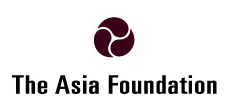KABUL, Afghanistan--(BUSINESS WIRE)--The Asia Foundation today released Afghanistan in 2013: A Survey of the Afghan People. In July, local pollsters interviewed a nationally representative sample of 9,260 Afghan men and women face-to-face in all 34 provinces. Afghans cite insecurity (30%), corruption (26%), and unemployment (25%) as the three biggest problems facing Afghanistan as a country. Afghans identified unemployment (27%), electricity (24%), and roads (19%) as the biggest problems locally. More than half of Afghans polled say that the outcome of the 2014 election will make a positive difference in their lives, but 81% are concerned about election day security. The 2013 survey is the Foundation’s ninth annual survey of Afghan citizens in all 34 provinces and is the longest-running poll in the country. Since 2004, over 55,000 Afghans have been interviewed. The findings were released today in Kabul, Afghanistan and Canberra, Australia.
Afghanistan is approaching major security and political transitions in 2014 – the April presidential election and the December deadline to withdraw international armed forces. Against this backdrop, the survey provides empirical data and illuminates citizen views on critical issues in Afghanistan: the elections, security, political participation, the economy and employment, and women’s rights.
“Despite a turbulent year, Afghans are resilient and remain optimistic,” said Abdullah Ahmadzai, The Asia Foundation’s deputy country representative in Afghanistan. “While the survey reveals a strong sense of unease and fear, Afghans are hopeful about the outcome of the upcoming election and the government’s reconciliation efforts to stabilize Afghanistan.”
Key findings from the 2013 survey include:
-
Afghans continue to worry about insecurity, corruption, and
unemployment.
Afghans cite insecurity (30%), corruption (26%), and unemployment (25%) as the three biggest problems facing Afghanistan as a country. Overall, a majority of Afghans (59% in 2013, up from 48% in 2012) report fearing for their safety or security, with the West region reporting the most fear. -
Afghans are hopeful for the 2014 election, but cite security as a
concern.
More than half (56%) say that the outcome of the 2014 election will make a positive difference in their lives. Most Afghans (81%) say that security conditions are a factor in their decision to travel to polling stations to vote on election day.
-
Afghans’ confidence in a range of institutions and organizations is
at an eight-year low.
Public confidence in parliament suffered the sharpest decline (15%). At the same time, Afghans’ satisfaction with the performance of different levels of sub-national governance also declined markedly.
-
Afghans continue to say the country is moving in the right
direction.
Fifty-seven percent, an increase from 2012 (52%), report Afghanistan is moving in the right direction. Overall optimism is the highest in the Central/Hazarajat, South West, and South East regions.
-
Afghans have a high level of public awareness of the government’s
attempts at reconciliation with armed opposition groups (AOGs).
Seventy-four percent recognize the government’s attempts at reconciliation AOGs, while 63% say that these efforts can help stabilize the country. One third (35%) say they have sympathy for the AOGs, an increase from 30% in 2012 and 29% in 2011. When asked why Afghans might disagree with the goals of the AOGs, the main reason cited is that they kill innocent civilians.
-
Afghans continue to support and have high levels of confidence in
the Afghan National Army and Afghan National Police.
Ninety-one percent report that ANA is improving security, while 86% say the ANP also is improving security. At the same time, 76% say that ANP will continue to need foreign assistance.
“This year’s survey also reveals changing perceptions towards the women and girls of Afghanistan,” said Palwasha L. Kakar, The Asia Foundation’s Women’s Empowerment and Development director in Afghanistan. "Despite the tremendous gains in the past decade, Afghan women face significant security, political, and economic challenges. Afghans report that illiteracy and a lack of job opportunities are the most pressing problems facing Afghan women today.”
Download the survey report and interact on the Visualizing Afghanistan platform at www.asiafoundation.org/ag2013poll. View a photo slideshow of the 2013 polling. Engage with us on Twitter @Asia_Foundation and #AfghanSurvey.
ABOUT THE SURVEY
Afghanistan in 2013: A Survey of the Afghan People is The Asia Foundation’s ninth annual public opinion survey in Afghanistan. Expert survey teams were deployed from July 17 and July 25, 2013 to gather the opinions and perspectives of a nationally representative sample of 9,260 Afghan men and women. 962 male and female enumerators conducted face-to-face interviews across all 34 provinces of the country, often under challenging conditions. Respondents were 18 years of age or older, including 14% from urban households and 86% from rural households. The 2013 total margin of error is +/- 2.25% and the sampling error is +/-1.10% both at 95% confidence levels. The 2013 survey is a product of The Asia Foundation, with support provided by Australian Aid/Department of Foreign Affairs and Trade (DFAT), the United Kingdom Foreign and Commonwealth Office/Department for International Development (FCO/DFID), and the United States Agency for International Development (USAID).
ABOUT THE ASIA FOUNDATION IN AFGHANISTAN
The Asia Foundation is a nonprofit international development organization committed to improving lives across a dynamic and developing Asia. The Asia Foundation began operating in Afghanistan in 1954 and re-opened its Kabul office in 2002. Since then, the Foundation has assisted Afghan efforts to rebuild the country and accelerate development. Our programs focus on governance, law, and civil society, including support for the development of a new constitution and national voter registration, civic education, women’s empowerment and education.
*Spokespeople available in Afghanistan, Australia, and U.S.




